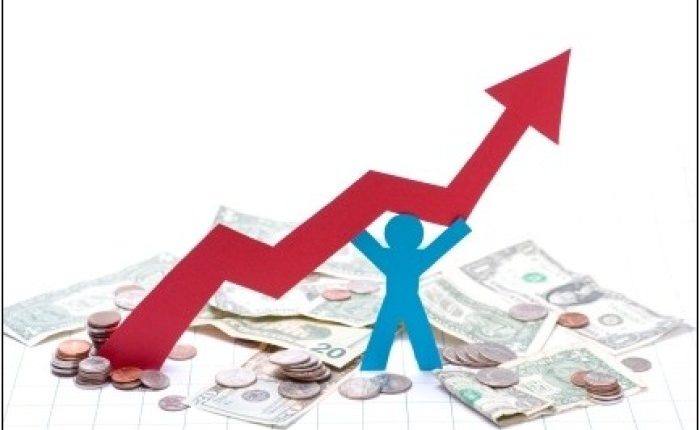Indonesia’s Economic Prospects Are Still Positive Amid External Turmoil
By : Putri Ganeswari )*
Geopolitical conflicts and inflationary storms that hit various countries in the world did have an impact on the economy in Indonesia. Economic risks are currently shifting from a pandemic to global economic turmoil.
Global inflation experienced a spike as a result of supply disruption due to the pandemic and the Russo-Ukrainian war, which was accompanied by a tightening of monetary policy in developed countries. However, Indonesia’s economic growth in Q2 remained impressive and Indonesia’s external performance remained strong.
Suahasil Nazara as Deputy Minister of Finance (Wamenkeu) on the occasion of the National Seminar on the Indonesian Economic Bachelors Association (ISEI) on August 24, 2022 in Semarang, said that the projection of global economic growth was corrected quite deeply (significant downward revision and broad-based), including in major countries such as the US, China and Europe. Inflation projections are revised upwards due to rising energy and food prices and persistent supply-demand mismatches.
However, the performance of Indonesia’s domestic economy has strengthened, although it still requires anticipation and mitigation measures. Economic growth continued to strengthen even though inflation was on an upward trend, but this inflation remained under control.
Suahasil explained, Indonesia is grateful considering that this year’s economic growth has been mentioned many times, namely 5.4% (Q2). The trend is up. Inflation has also increased, but inflation is still under control below 5%.
In particular, Suahasil underlined the turmoil that occurred in the volatility of global commodity prices. This volatile up and down price volatility complicates the planning carried out by the business world as well as the Government.
In the midst of the volatility of global commodity prices, Indonesia’s external sector performance is still quite strong. Exports and imports continued to show positive growth in the midst of global economic pressures.
In July 2022, Indonesia’s exports had reached USD 25.57 billion and imports reached USD 21.35 billion. On a month-to-month basis, exports contracted 2.2% while imports grew 1.6%. Annually and cumulatively, exports and imports show a positive direction. Exports grew by 32.03% (yoy) and 36.36 (ytd), while imports grew by 39.86% (yoy) and 29.38% (ytd). The trade balance in July 2022 recorded a surplus of USD 4.23 billion, although it fell but still continued the surplus trend for 27 consecutive months.
Previously, President Joko Widodo (Jokowi) assessed that the country’s economic situation was still conducive in the midst of turbulent world conditions.
Jokowi said that Indonesia’s trade balance was still positive. As of March 2022, there was a surplus of 4.5 billion US Dollars.
Meanwhile, the credit rating agency Standard and Poor’s (S&P) upgraded Indonesia’s outlook from negative to stable and maintained Indonesia’s credit rating at the BBB level.
The Director General of Financing and Risk Management (DJPPR) of the Ministry of Finance, Luky Alfirman, assessed that the increase in Indonesia’s outlook was an acknowledgment of the strong direction of macroeconomic improvement, in particular the relatively fast pace of economic recovery, strong external position and significant strengthening on the fiscal side.
S&P expects the deficit to narrow considerably in the next two to three years and return to below 3 percent of gross domestic product (GDP). In addition, Indonesia’s external position strengthened significantly in 2021, recording in 2021, recording a surplus of 0.3 percent of GDP. Improvements in trade transactions continued and recorded strong growth in early 2022.
S&P believes that the Job Creation Law will be able to drive significant improvements in the business and investment climate through fundamental improvements in the regulatory system and bureaucratic efficiency so that it will be able to boost potential economic growth in the medium-long term.
In addition, in terms of political stability, S&P assesses that Indonesia is in a stable and conducive condition which has been tested in political decisions to handle the Covid-19 pandemic and fiscal reform.
Various policy mixes and synergies between institutions and all elements of society will continue to be directed at strengthening the acceleration of economic recovery and improving the foundation of the national economy.
Currently, Indonesia is on solid economic fundamentals. Retail and tourism activities have returned to their normal position as before the Covid-19 pandemic. It was noted that until the first half of 2022, Indonesia’s trade surplus reached US$25 billion. That number increased by 110 percent compared to the same period in 2011.
Indonesia must remain optimistic and resilient in surviving in the midst of global challenges and appeal to entrepreneurs. The goal is to remain optimistic to continue to expand and strive to maintain Indonesia’s economic development which has been progressing well.
Entrepreneurs and MSME activists must remain optimistic that the economy in Indonesia will continue to strengthen even though global inflation and geopolitical conflicts are the cause of economic threats in various countries. On the other hand, the government also needs to help MSME activists to develop their businesses.
)* The author is a contributor to the Nusantara Reading Room
